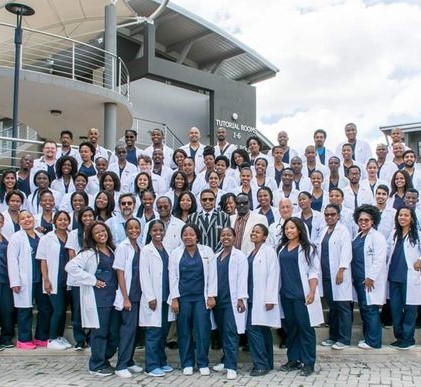South Africa has one of the biggest HIV burdens of any country in the world, and since 1990 the Eastern Cape Province has had the highest TB incidence, second highest HIV prevalence, and worst rank among South Africa’s nine provinces in its Human Development Index score. While NIH funds a lot of research and implementation support in South Africa, 99.7% of all NIH funds awarded since 1993 have gone to institutions in Durban, Johannesburg, and Cape Town, with no funding going to institutions in the Eastern Cape. To address the dramatic inequities faced by this region, in 2017 the Desmond Tutu Health Foundation established a research program in Eastern Cape Province to support research infrastructure, capacity and output from Eastern Cape by collaborating with and capacitating local Historically Disadvantaged Universities (HDUs), which are similar to Historically Black Colleges and Universities (HBCUs) in the United States.
In 2022, the Desmond Tutu Health Foundation was awarded a five-year training grant in partnership with the University of California, San Francisco to work with faculty and doctoral students at the University of Fort Hare and Walter Sisusu University (two of South Africa’s eight designated HDUs) to strengthen PhD training capacity among faculty and trainees of these institutions. Shelley Facente was written into this grant as a faculty mentor, and Facente Consulting was hired to develop and deliver a series of courses as part of this effort. In 2024, this included a course on conducting high-quality systematic reviews and meta-analyses, and another on NIH proposal writing for new investigators, both conducted in person in the Eastern Cape. Unfortunately, this five-year grant was terminated by the U.S. government in early 2025 due to the South African location, and thus the project was ended early.

